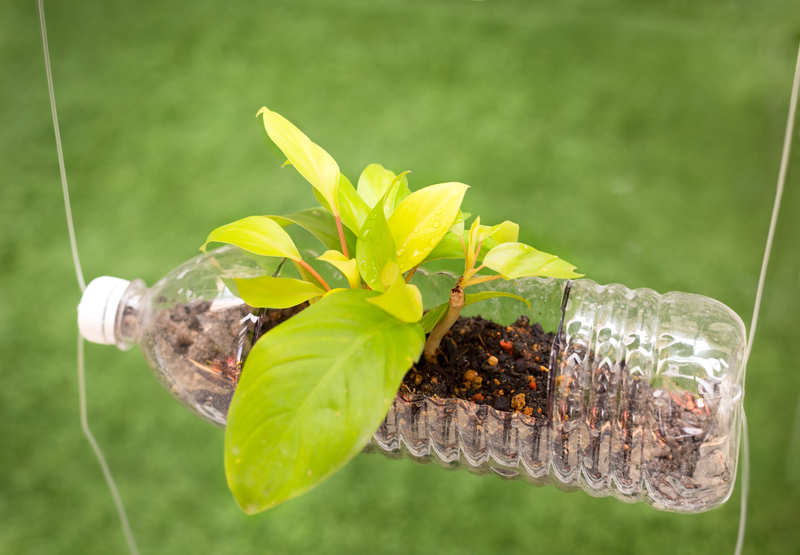Improve Recycling Awareness at Work: Strategies and Best Practices for a Sustainable Office
In today's environmentally conscious world, workplaces play a pivotal role in fostering sustainable practices. Improving recycling awareness at work not only benefits the environment but also enhances company reputation, employee engagement, and cost-effectiveness. This comprehensive guide will explore effective strategies, actionable tips, and creative ideas to boost recycling initiatives and awareness in your workplace.
Why Focus on Recycling in the Workplace?
Every year, businesses generate tons of waste that often ends up in landfills. By increasing recycling awareness at work, companies can significantly reduce their environmental footprint, save money, and comply with local regulations. Encouraging recycling in offices also shapes a positive company culture that values sustainability.
- Environmental Impact: Reducing waste helps conserve natural resources and lowers greenhouse gas emissions.
- Cost Efficiency: Effective recycling often means lower disposal costs and in some cases, revenue from recycled materials.
- Employee Engagement: Green initiatives make employees feel proud and motivated.
- Reputation: Businesses with strong environmental policies attract quality talent and customers.

Understanding Current Recycling Habits
Before launching any workplace recycling program, it's essential to assess current recycling habits. A simple waste audit can reveal how much and what type of waste your office generates. Look for:
- Amount of paper, plastic, and e-waste
- Current disposal methods
- Employee knowledge and attitudes towards recycling
With this data, you can identify gaps and opportunities to improve recycling participation at work.
Setting Clear Recycling Goals
Setting achievable and measurable recycling goals is key to increasing awareness and participation. Consider goals such as:
- Diverting a specific percentage of waste from landfill
- Reducing paper usage by a set amount
- Launching a zero-waste challenge or month
Share these goals with your team and update them regularly to keep everyone motivated and informed.
Design an Effective Office Recycling Program
A functional and well-organized recycling program is at the core of workplace sustainability. Follow these steps to develop one:
1. Select the Right Recycling Bins and Placement
- Select color-coded, clearly labeled bins for paper, plastics, metals, and other recyclables.
- Place recycling stations in high-traffic areas such as break rooms, copy rooms, and near entrances.
- Use signage with icons and examples of what can and can't be recycled.
2. Partner with Recycling Providers
- Work with reputable waste management companies that can handle your types of office waste.
- Arrange regular pick-ups and request data on your recycling rates.
3. Educate Employees through Training
- Host recycling workshops and presentations with clear, engaging content.
- Distribute guides and quick-reference sheets on recycling do's and don'ts.
- Invite local sustainability experts to speak at staff meetings.
The more knowledge employees have, the more likely they are to make sustainable choices.
Increase Recycling Awareness at Work: Creative Campaigns and Communication
Workplace recycling campaigns boost excitement and help the message stick. Here are innovative ways to drive awareness and action among employees:
1. Launch a "Green Team"
- Recruit volunteers from different departments to champion recycling efforts.
- Empower the Green Team to organize events, track progress, and share stories of success.
2. Hold Recycling Challenges and Contests
- Organize competitions between teams or departments to see who can recycle the most or eliminate single-use plastics.
- Reward winners with prizes, certificates, or public recognition.
3. Leverage Digital Communication
- Send regular emails with recycling tips, facts, and progress updates.
- Share infographics and environmental "Did You Know?" moments in company newsletters.
- Create an internal page dedicated to your office recycling program, complete with instructional videos and FAQs.
4. Interactive Signage & Reminders
- Post fun, eye-catching signs near recycling bins with positive messages.
- Use QR codes linking to informative web pages on recycling best practices.
Address Common Recycling Challenges at Work
Even with the best intentions, every organization faces obstacles in implementing a work recycling awareness program. Here are tips to overcome the most common challenges:
- Lack of Knowledge: Combat confusion by providing clear, concise educational materials and visuals.
- Bin Contamination: Train staff on proper sorting and the consequences of contamination (e.g., the entire batch might end in landfill).
- Inconvenient Bin Placement: Survey employees to find optimal bin locations and ensure easy access.
- Low Engagement: Host motivating events and recognize employees who lead by example.
Beyond Traditional Recycling: E-Waste, Batteries, and More
Today's workplaces generate a range of waste, many of which require special handling. To fully boost recycling efforts at work, consider these often-overlooked streams:
- Electronic Waste: Set up collection days for old computers, phones, and printers. Partner with certified e-waste recyclers.
- Batteries, Ink Cartridges, and Light Bulbs: Provide drop-off points for safe and responsible recycling of these items.
- Food Waste: Explore composting options or donate surplus edible food to local charities.
Host an E-Waste Awareness Event
Bring in a local recycling partner for a one-day e-waste drop-off event. Use the opportunity to share facts about the importance of proper electronic disposal and support a greener work environment.
Engage and Empower Employees
Employees are the heart of any successful sustainability initiative. Encourage participation by making recycling part of the company culture:
- Recognize recycling heroes in meetings and newsletters--positive reinforcement goes a long way.
- Involve staff in the design and rollout of new programs--people are more likely to support what they helped create.
- Encourage feedback and suggestions through surveys to identify further improvements and foster a sense of ownership.
By involving staff at every level, you build long-term commitment and enthusiasm for sustainability in the workplace.
Measure Progress and Celebrate Success
What gets measured gets managed. Regularly track your company's recycling achievements and communicate results. Key metrics might include:
- Total weight or volume of materials recycled each month
- Reduction in waste sent to landfill
- Decrease in paper or office supply usage
Celebrate milestones with office-wide events, eco-friendly rewards, or public shout-outs to reinforce the importance of your efforts to increase recycling awareness at work.
Promote Continuous Learning and Improvement
Sustainability is a journey, not a destination. Stay informed about recycling best practices in your industry and update your program accordingly. Offer ongoing professional development opportunities:
- Subscribe to sustainability newsletters or blogs
- Encourage attendance at green workshops or webinars
- Set up "Lunch and Learn" sessions on recycling innovations and local recycling regulations
The Broader Benefits of Recycling Awareness at Work
Improving recycling and sustainability at work doesn't just protect the planet. It also pays dividends in terms of company culture, brand image, and employee well-being.
- Boosts morale: Employees feel good knowing their workplace makes a difference.
- Attracts eco-conscious customers and staff: Sustainability is a strong factor in employer and brand choice.
- Fosters innovation: A green mindset inspires creative problem-solving and operational efficiency.

Case Study: Example of a Successful Workplace Recycling Program
Consider the example of a leading software company that implemented a comprehensive office recycling improvement plan. After assessing baseline habits, the company launched:
- Clearly marked recycling stations within 20 feet of every desk
- Monthly recycling challenges and team competitions
- Quarterly "green" newsletters with employee spotlights and progress updates
- Specialized e-waste campaigns and paper reduction targets
Within a year, the company reported a 45% drop in landfill waste and increased employee satisfaction scores. Their success demonstrates the power of an inclusive, creative, and well-communicated recycling awareness campaign at work.
Conclusion: Start Improving Recycling Awareness at Work Today
Improving recycling awareness at work is more important than ever. By assessing current habits, setting clear goals, providing education, and encouraging participation, every organization can become a leader in sustainability. Remember--small steps add up to big impact. Start today, involve your team, and make recycling second nature in your workplace.
Ready to improve your workplace recycling? Begin with a waste audit, rally your Green Team, and watch your office transform into a model of environmental responsibility.
- Assess your current recycling efforts
- Communicate and educate creatively
- Engage everyone in sustainability
- Celebrate each milestone
Together, we can create greener, cleaner, and more conscious workplaces for the future.